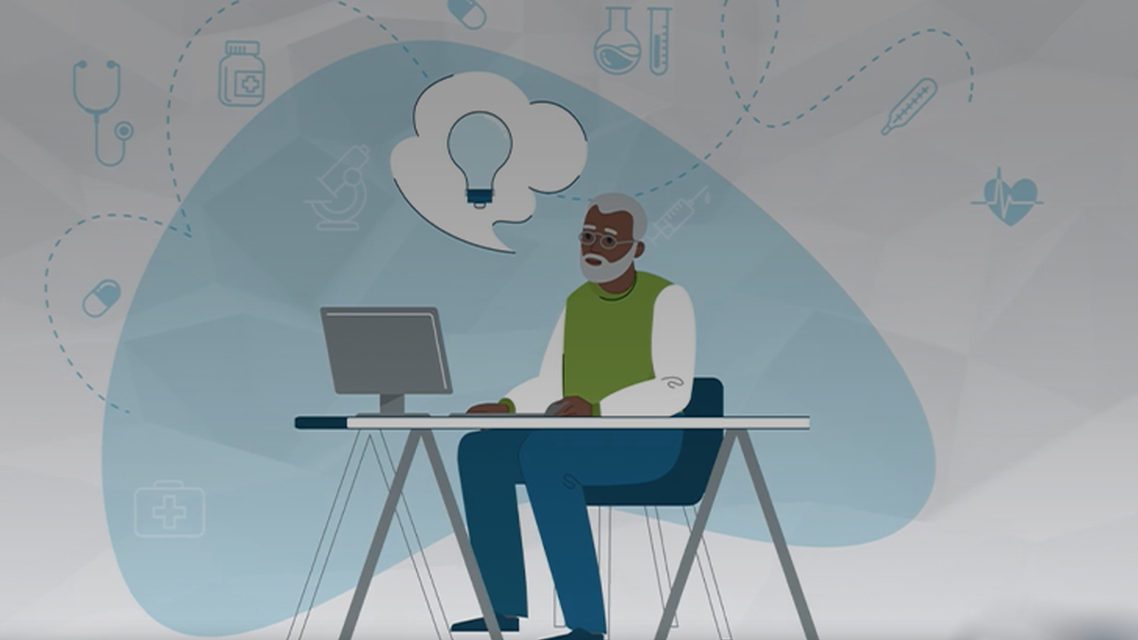Patients as Partners in Multiple Myeloma: What to Ask and What to Expect

Dr. Costello:
Hi, I’m Dr. Caitlin Costello, a myeloma specialist at the University of California at San Diego. Now, we know that getting a diagnosis of any cancer can be a very overwhelming situation, and I hope that if you have been diagnosed with multiple myeloma recently, that you will find that this next update will be very helpful in answering some of your questions, or to prepare you for what to expect with your upcoming consultation with your oncologist. It is important to prepare for your appointment with your oncologist, so you know what you’re going to ask, and know what you hope to leave with, in terms of answers to many of your questions. I think it is most critical for when you start the conversation, to understand from your oncologist exactly what it is that they know about your multiple myeloma.
What kind of multiple myeloma do I have? What stage of multiple myeloma do I have? What kind of treatments are available to me, in order to improve my cancer and make me feel better?
You and your oncologist now make up an important team, where we can understand what the best treatments are for you, based on your specific form of multiple myeloma, based on any other medical conditions that you have had, and choose something that is particularly personalized, to help improve your specific situation. It is important to ask about the treatments that you will be receiving.
What would you expect them to do, in terms of side effects, or how would they expect them to work in your particular scenario? It’s important to understand that treatments can come in the form of pills, or shots, or infusions, and can be very convenient in the means of which they are administered, without involving hair loss, or oftentimes significant nausea and vomiting, that we frequently associate with chemotherapy. And so, as you are receiving these treatments, it’s also important to understand from your oncologist how they will be able to assess how the treatment is working. Do I need blood tests, or do I need pictures of my bones, to understand how the myeloma has affected them, or how they are getting stronger?
Most importantly, it is critical that you remain very open and honest with your oncologist about any side effects that you may be experiencing from medications. We always like to say, we have lots of tricks up our sleeve to help you feel better, but we can’t help if we don’t know. So it’s important to ask what to expect, as far as side effects are with the individual treatment that your oncologist has prescribed, and make sure that you are monitoring those along the way, so you can provide the feedback that may help your oncologist understand how to make adjustments, to make the treatment regimen more tolerable and still maintain its effectiveness.
I know this can be a scary time, however, it’s important to realize that the treatment of multiple myeloma has really allowed for just significant improvements in patients’ quality of life most importantly, but also to understand that patients can live for a very long time with this – sometimes considered more chronic cancer now.
Recommended
Maximizing B-Cell Lymphoma Outcomes with CAR T-Cell Therapy and Personalized Care
Maximizing B-Cell Lymphoma Outcomes with CAR T-Cell Therapy and Personalized Care
Project Oncology®Maximizing B-Cell Lymphoma Outcomes with CAR T-Cell Therapy and Personalized Care
Relapsed/Refractory CLL Care: Tailoring Treatment and Addressing Adverse Events
Relapsed/Refractory CLL Care: Tailoring Treatment and Addressing Adverse Events
Project Oncology®Relapsed/Refractory CLL Care: Tailoring Treatment and Addressing Adverse Events
Navigating CLL Treatment: A Deep Dive into Efficacy and Safety
Navigating CLL Treatment: A Deep Dive into Efficacy and Safety
Project Oncology®Navigating CLL Treatment: A Deep Dive into Efficacy and Safety
Best Practices for Utilizing Shared Decision-Making in CLL Care
Best Practices for Utilizing Shared Decision-Making in CLL Care
Project Oncology®Best Practices for Utilizing Shared Decision-Making in CLL Care









